SICARIA INTERVIEW: VIPER PRESENTS [FEATURE] BOLD ENGAGING INTERVIEW 2025

SICARIA INTERVIEW: Formerly on the scene as part of duo Sicaria Sound, the last couple of years have seen Sicaria firmly establish herself as a solo artist. Known for creating a sense of community around the music she plays, Sicaria values a grassroots approach to Electronic music, championing the culture from the ground up. This ethos has earned her recognition not just as a leading DJ but also as a huge role model to her loyal fanbase and other artists in the Dance music scene. Get familiar…
What five words define your sound?
Dynamic, Bass-heavy, Fierce, Nostalgic, Defiant.
Tell me something unique about your creative process.
Honestly, I don’t know if it’s “unique,” but I’d call it organised chaos. I’ve got random spreadsheets, half-written notes, and voice memos full of me humming basslines or muttering ideas I’ll probably barely understand later. I’m usually on the move, so I’ve had to build a system that makes sense to no one but me. Sometimes I’ll even sketch ideas in colour codes or little symbols; it’s like my own visual language for sounds. It’s very messy, but there’s a method to it.
Which song of yours would you like people to hear first?
I’d probably say ‘MOVING FWD >>‘ with Emz. It’s the closest reflection of what my DJ sets actually sound like – raw energy on the dancefloor type feeling. It also sums up my journey so far in music: my roots in Dubstep and Grime, and the way I approach both the scene and life in general. There’s a clear message in it too, about evolution, community, and actually moving things forward rather than just talking about it.
What inspired you to make that song?
‘MOVING FWD >>’ was inspired by a mix of nostalgia and frustration, to be honest. I was thinking about how strong the sense of community used to be in the early Dubstep and Grime scenes – crews, pirate radio, proper raves – and how that energy feels kind of lost now. Everyone talks about wanting things to change, but most aren’t really doing anything about it. So the track became a reflection of that feeling: a reminder that we’ve got to rebuild that sense of unity and move forward together, instead of just looking back or complaining about how things used to be.
What’s the most vulnerable you’ve allowed yourself to be when writing / making music?
I think every EP I’ve made has shown a different kind of vulnerability. ‘BLOOD, SWEAT & SELF’ was me figuring out who I was ‘sonically’ as an artist, like a musical self-portrait. But ‘ANTI NIHILO’ feels more vulnerable because it came from a place of feeling lost and powerless about the world. I was in this weird headspace where everything felt chaotic, and I started to question whether what I was doing even mattered. Making this project helped me flip that energy; in a way I was rejecting that sense of emptiness and realising that change starts with us first. So yeah, I’d say this one’s definitely the most open I’ve been.
What’s the best / worst experience you’ve had on stage?
The worst one’s easy: I basically cleared the whole of KOKO once – i.e. a 1,500 capacity venue. It was one of those really disjointed lineups that I probably shouldn’t have said yes to. I had to play after a UK legend who was already playing a pretty bizarre set by their standards, so by the time I came on, the crowd was basically done. I remember the cleaner coming out to sweep the floor during the last fifteen minutes of my set, and then they cut the power straight after my final tune… even though there was meant to be another DJ after me. Peak humiliation.
The best, though, was Sónar Barcelona earlier this year. It was my first time playing solo in Spain, and I honestly didn’t know what to expect. I started with like thirty people in front of me, and by the end, there were thousands – all chanting my name. My agent was backstage holding back tears of pride. That moment was wild; it reminded me why I do this in the first place.
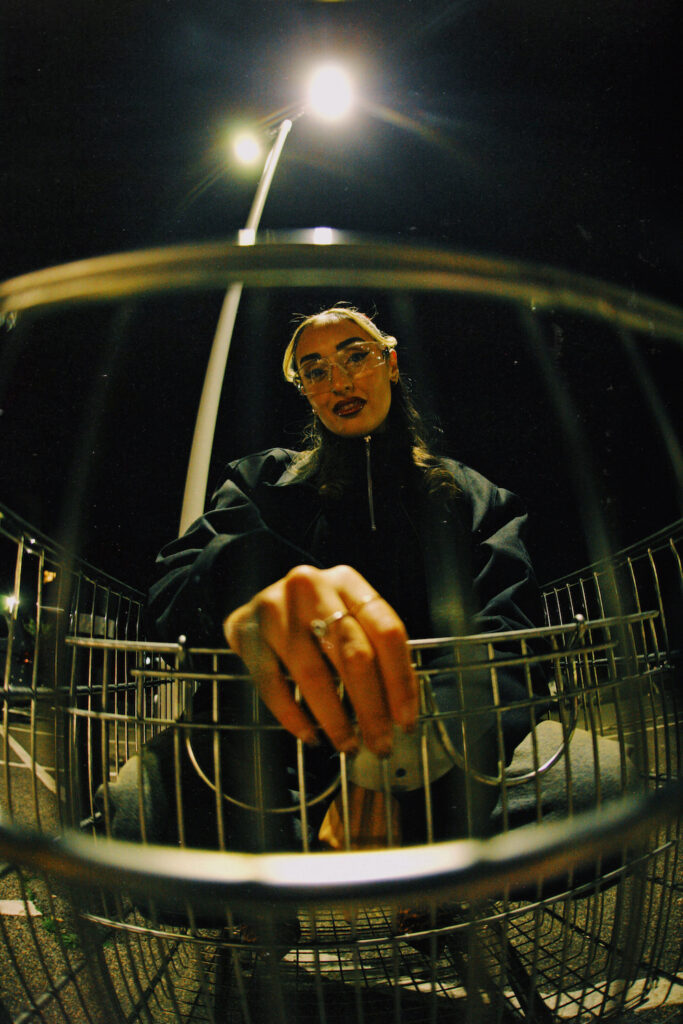
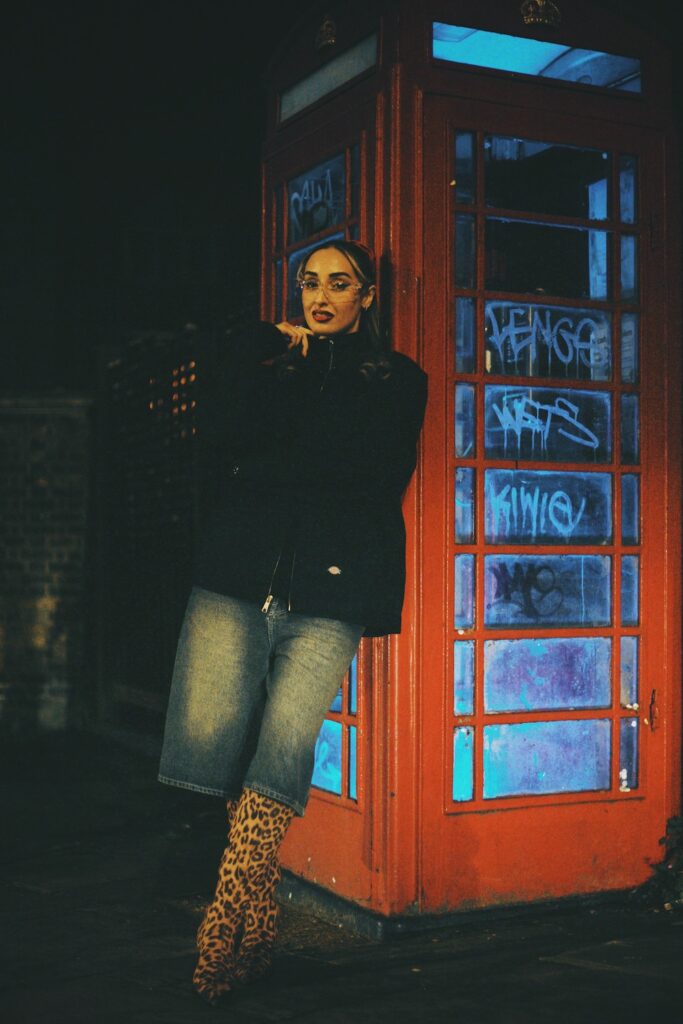

Which artist/song/album made you want to make music?
Definitely Digital Mystikz. I’ve always loved how they represented the two sides of the sound: Coki’s rough and ready, dancefloor killer energy and Mala’s deeper, more reflective approach. That balance really stuck with me because I’ve always wanted to capture both: the weight and the emotion versus the dancefloor and the depth. The actual FWD>> nights were a big inspiration too – not just musically, but in terms of energy and community. It was one of the first spaces where people came together purely for the sound. That sense of unity and rawness is something I’m constantly chasing. And honestly, I still get inspired by the artists who send me music today; hearing dubs from people in the scene pushes me to keep evolving and writing. It’s a reminder that this sound is still alive and kicking.
What’s the meaning behind your name?
SICARIA means “female hitwoman,” and I’ve always loved the energy behind that. When I first took on the name – nearly ten years ago, back when I was part of a duo – it felt powerful. It represented being fearless and taking up space in what was, and still can be, a very male-dominated scene. Over time though, I’ve started to evolve beyond it. The name still means a lot to me, but I feel myself growing into something new and more personal; more reflective of who I am now. That shift’s coming next year, and I’m actually really excited for it.
If you weren’t making music / DJing, what would you be doing instead?
Probably something in presenting or health and wellness. I love connecting with people and nattering about our shared stories – that’s what draws me to presenting. It feels like DJing in a different form; you’re still creating energy and guiding people through an experience, just with words instead of music. I’ve also always been really interested in health-related studies, but that interest deepened after dealing with burnout and learning how to slow down, especially while managing an autoimmune condition. It taught me a lot about balance and resilience, and I’d love to give back to others – particularly women – who might be going through the same thing.
What’s success to you?
The idea of success has changed massively for me. When I first started out in my early 20s, I had this real cookie-cutter idea of what it meant – playing huge shows all over the world, making loads of money, chasing status and recognition. And I’ve had glimpses of that, but honestly, it didn’t fulfil me the way I thought it would. I’m not trying to be the next David Guetta or anything – I’ve just realised that kind of success isn’t what keeps me grounded. These days, success is about balance: being able to make a living from my creativity, spending real time with friends and family, nurturing genuine connections, and staying present. If I can do all that and still love what I do, that’s success to me.
What moment in your life/career forced you to change direction?
There wasn’t one big dramatic moment. Tying in with my last answer, it was more like a slow realisation that the version of success I’d been chasing wasn’t actually making me happy. I was doing everything I thought I wanted – touring, playing big shows, hitting milestones – but somewhere along the way, I started to feel disconnected from it all. I even caught myself building resentment towards the path I was on, which was a bit of a wake-up call. It forced me to slow down and really reassess what I want my life and creativity to look like. Now I’m in a place where I’m letting myself evolve and explore new sides of who I am, and people will definitely see more of that next year.
Where can people keep in touch with you?
Super easy – it’s @sicariaonline pretty much everywhere. Like everyone, I’m most active on Instagram and Tiktok, but you can also find me on some of the other usual spots.
Photos by Cicely Grace
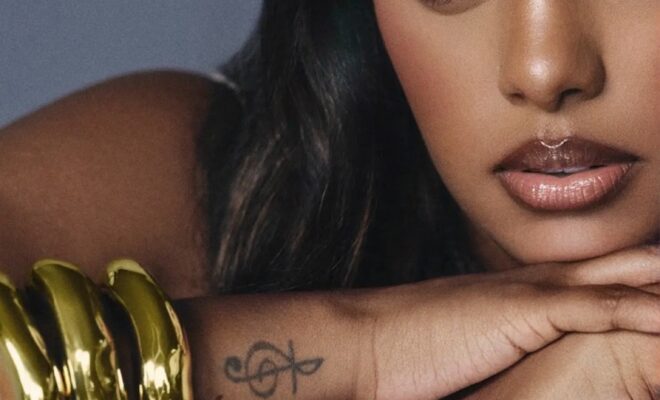
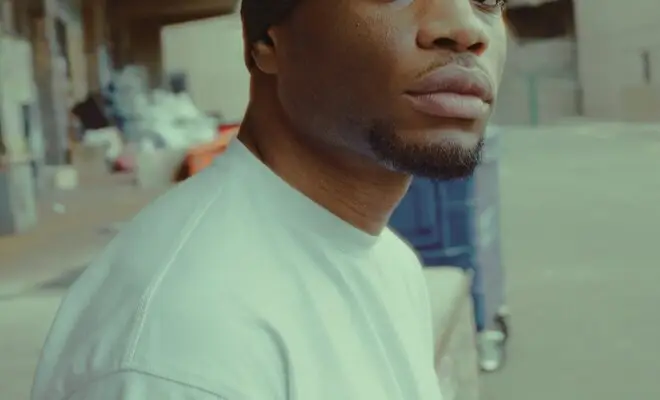
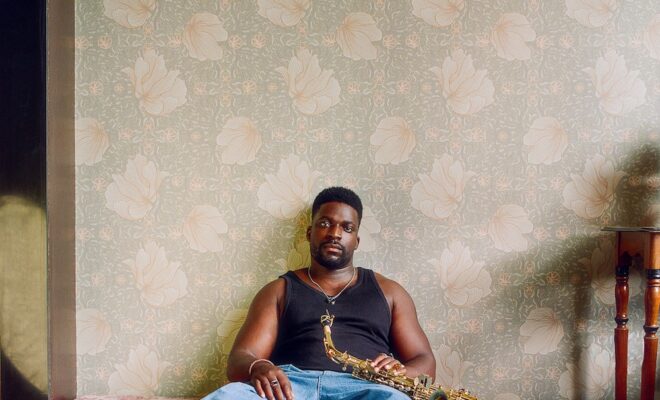


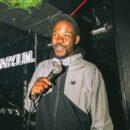


[INTERVIEW] WAVE MONTEGA HAS BIG THINGS COMING
[INTERVIEW] RUSS MILLIONS
[INTERVIEW] RUSS MILLIONS
[INTERVIEW] RUSS MILLIONS